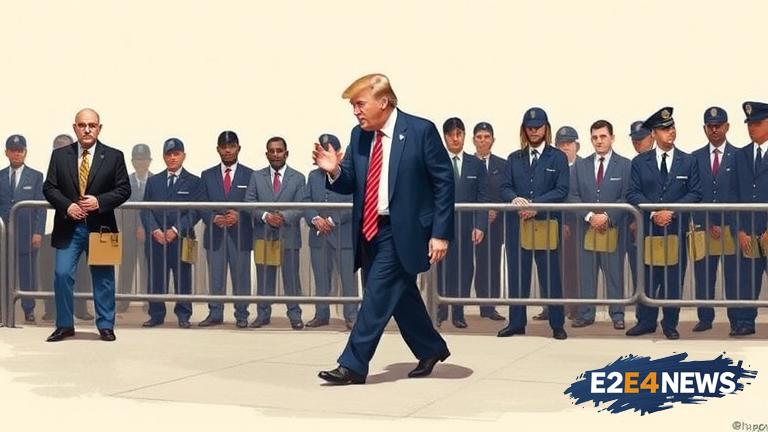President Donald Trump has signed an executive order that targets states with no-cash bail policies, sparking a heated debate about the effectiveness of such policies in reducing crime. The order, which was signed on August 25, 2025, is aimed at states like Illinois, which has implemented a no-cash bail policy as part of its criminal justice reform efforts. However, advocates for the policy argue that Trump’s order is nothing more than a symbolic gesture, and that it won’t force Illinois to reverse its stance. Illinois’ no-cash bail policy, which was implemented in 2021, has been the subject of controversy, with some arguing that it has led to an increase in crime. However, proponents of the policy argue that it has helped to reduce the number of people being held in jail simply because they cannot afford to pay bail. The policy has also been credited with helping to reduce racial disparities in the criminal justice system. Despite the controversy surrounding the policy, Illinois lawmakers have shown no signs of backing down, and have instead vowed to continue implementing the policy. Trump’s executive order is seen as a last-ditch effort to influence the policy, but it is unlikely to have any significant impact. The order calls on states to reconsider their no-cash bail policies, but it does not provide any concrete guidance or funding to support such efforts. Furthermore, the order is not legally binding, and states are not required to comply with it. As such, it is unlikely that Illinois will reverse its no-cash bail policy, despite Trump’s efforts. In fact, Illinois lawmakers have already begun to push back against the order, arguing that it is an overreach of federal authority. The state’s attorney general has also vowed to defend the policy in court, if necessary. The debate over no-cash bail policies is likely to continue, with both sides presenting competing arguments and evidence. However, for now, it seems that Illinois’ policy is here to stay. The policy has been the subject of extensive research and study, with many experts arguing that it is a necessary step towards creating a more just and equitable criminal justice system. Others, however, argue that it has led to an increase in crime, and that it is not an effective way to reduce recidivism rates. Despite these competing arguments, Illinois lawmakers have remained committed to the policy, and have continued to implement it despite opposition from some quarters. The policy has also been the subject of controversy at the federal level, with some lawmakers calling for a national no-cash bail policy. However, such efforts have been met with resistance from other lawmakers, who argue that such a policy would be ineffective and would lead to an increase in crime. As the debate over no-cash bail policies continues, it is likely that we will see more states implementing such policies, despite opposition from some quarters. In fact, several states have already begun to implement no-cash bail policies, and it is likely that more will follow suit in the coming months and years. The impact of these policies will be closely watched, and it is likely that we will see extensive research and study on their effectiveness. For now, however, it seems that Illinois’ no-cash bail policy is here to stay, despite Trump’s efforts to influence it. The policy has been a major point of contention in the state, with some arguing that it has led to an increase in crime. However, proponents of the policy argue that it has helped to reduce racial disparities in the criminal justice system, and that it is a necessary step towards creating a more just and equitable society. As the debate over the policy continues, it is likely that we will see more controversy and opposition, but for now, it seems that Illinois lawmakers are committed to implementing the policy. The state’s governor has been a major proponent of the policy, and has argued that it is a necessary step towards reducing recidivism rates and creating a more just and equitable criminal justice system. The governor has also argued that the policy has helped to reduce the number of people being held in jail simply because they cannot afford to pay bail, and that it has helped to reduce racial disparities in the criminal justice system. Despite the controversy surrounding the policy, the governor has remained committed to it, and has vowed to continue implementing it despite opposition from some quarters. The policy has also been the subject of extensive media coverage, with many outlets weighing in on its effectiveness. Some have argued that the policy has led to an increase in crime, while others have argued that it has helped to reduce recidivism rates and create a more just and equitable criminal justice system. As the debate over the policy continues, it is likely that we will see more media coverage and controversy, but for now, it seems that Illinois’ no-cash bail policy is here to stay.
